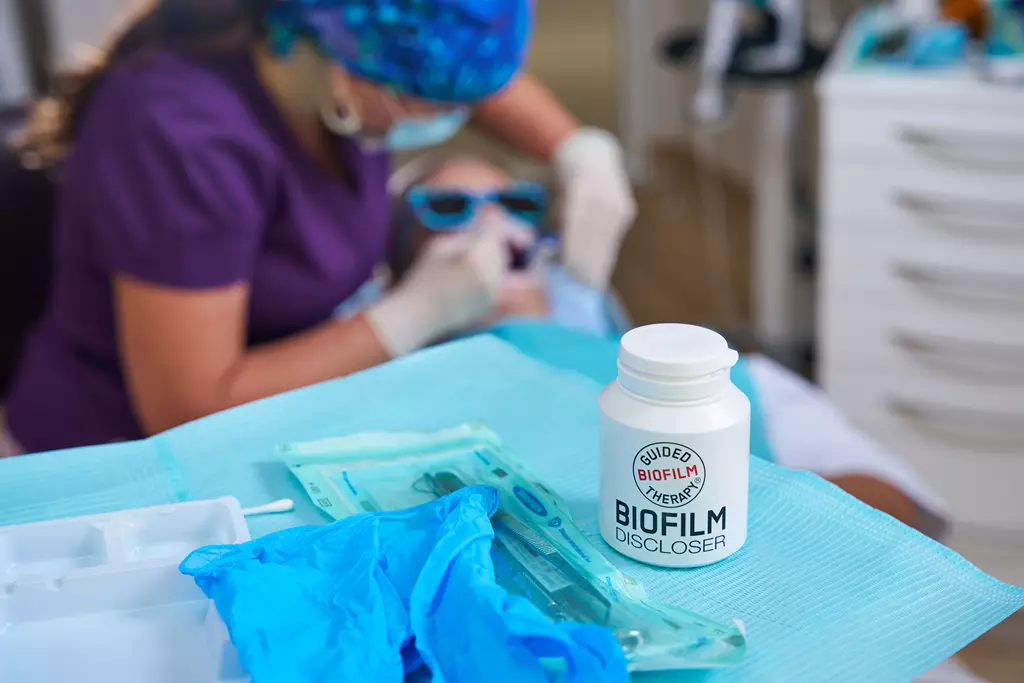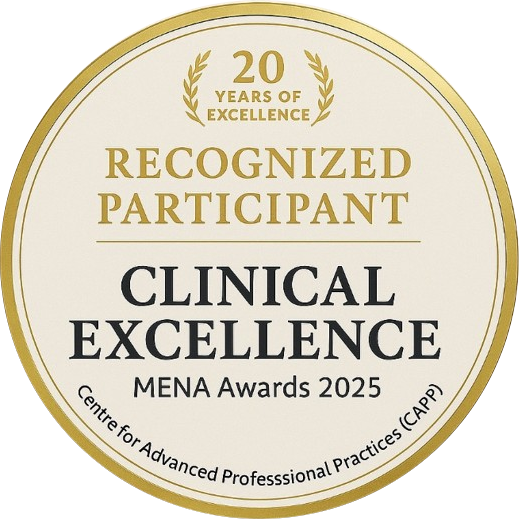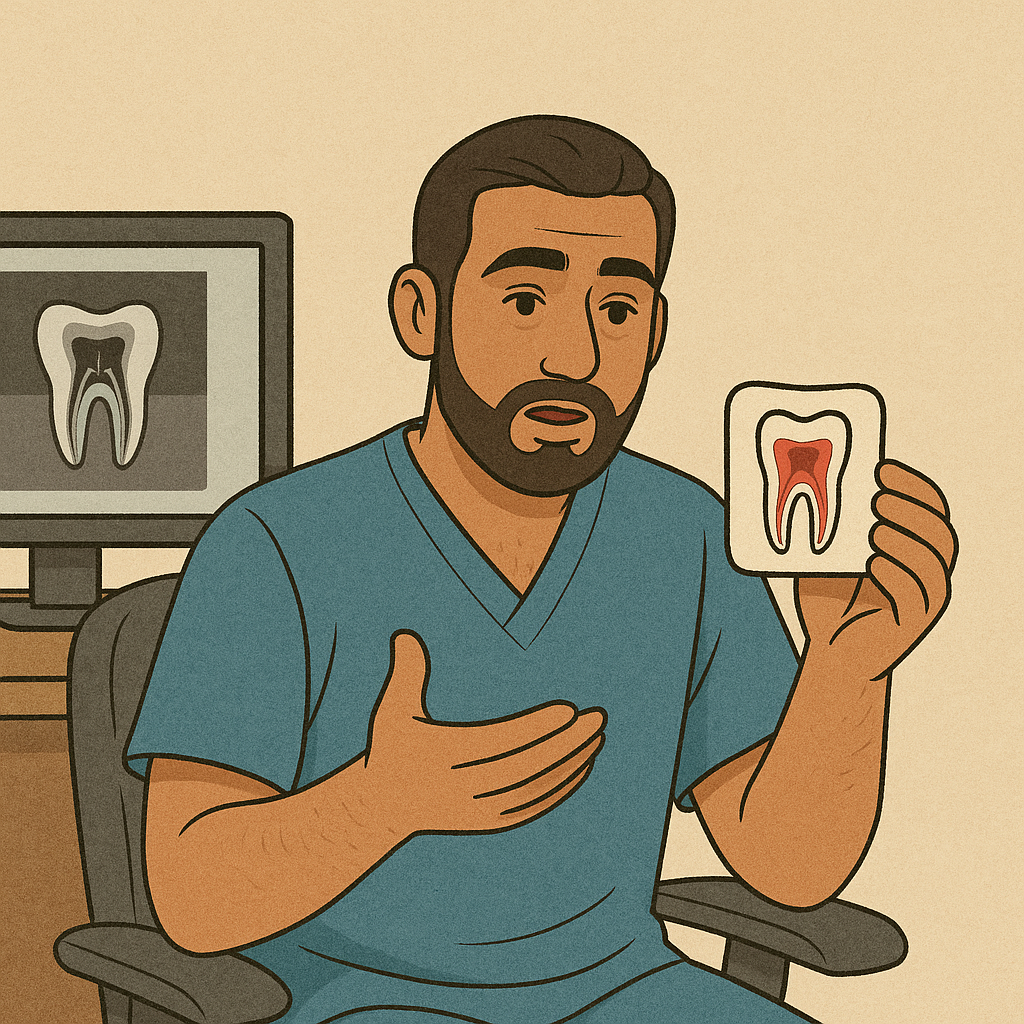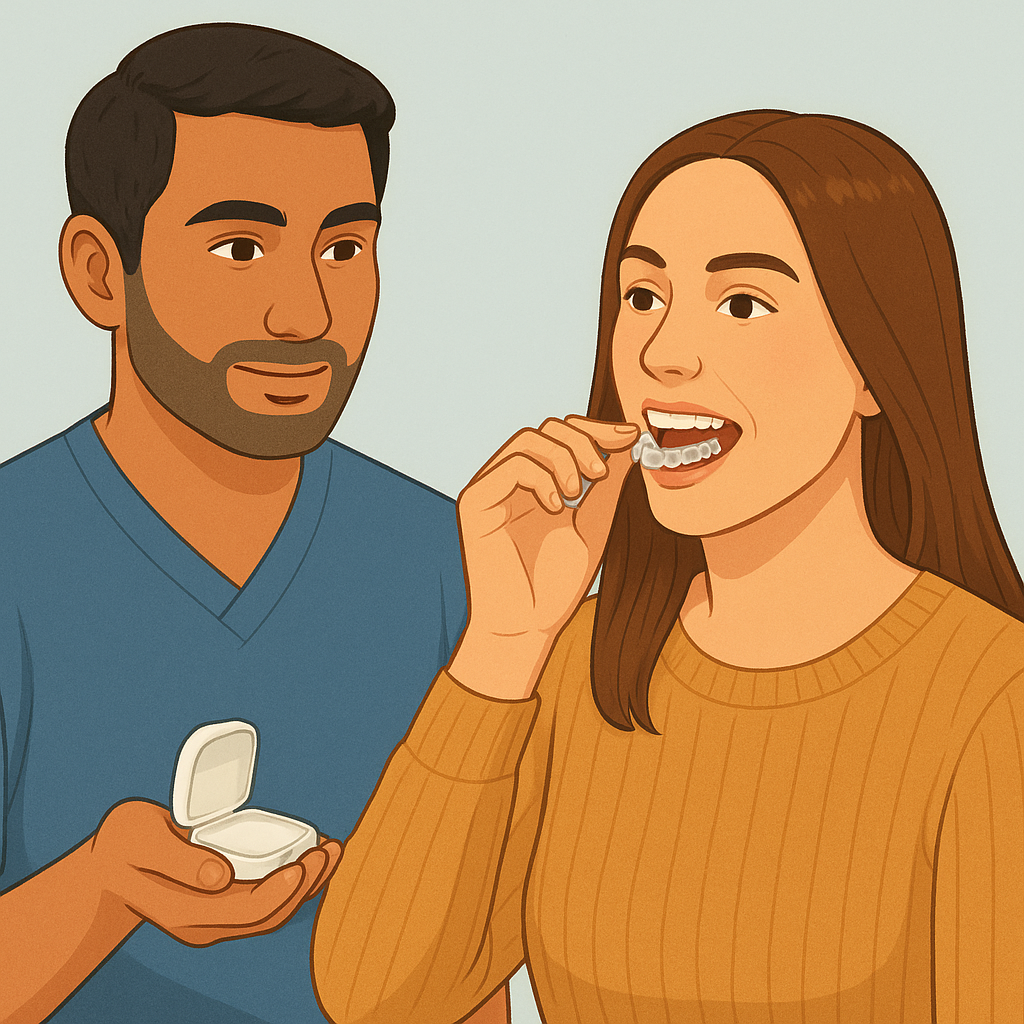When Is Professional Teeth Cleaning Necessary?
A dentist may recommend professional cleaning in the following cases:
- Plaque and Tartar Buildup – Even with good oral hygiene, plaque can harden into tartar, which requires professional removal.
- Gum Inflammation (Gingivitis) – Early-stage gum disease can be reversed with thorough cleanings.
- Persistent Bad Breath (Halitosis) – Bacteria trapped in plaque and tartar contribute to bad breath.
- Stained or Discolored Teeth – Removes surface stains from coffee, tea, tobacco, and food.
- Preventive Dental Care – Routine cleanings help prevent cavities, gum disease, and other oral health issues.
Types of Professional Teeth Cleaning
1. Regular Dental Cleaning (Prophylaxis)
- Removes plaque, tartar, and stains from tooth surfaces.
- Polishes teeth to make it harder for plaque to accumulate.
- Recommended every 6 months for most patients.
2. Deep Cleaning (Scaling and Root Planing)
- Used for patients with gum disease.
- Removes plaque and tartar from below the gum line.
- Smooths tooth roots to help gums reattach and heal.
3. Ultrasonic Scaling
- Uses high-frequency sound waves to break up tartar and plaque without damaging the tooth surface.
- Reduces the need for manual scraping, making the procedure more comfortable.
- Effective for removing stubborn deposits and deep plaque.
4. Air Polishing
- Uses a combination of water, air, and fine powder to remove stains and plaque.
- Ideal for patients with braces or dental restorations.
5. Fluoride Treatment
- Applied after cleaning to strengthen enamel and protect against cavities.
What Is Teeth Remineralization Therapy?
Teeth remineralization therapy is a non-invasive treatment that helps restore essential minerals to weakened enamel, making teeth stronger and more resistant to decay. This therapy is particularly beneficial for individuals with early signs of enamel erosion, white spot lesions, or sensitivity.
How Does Remineralization Therapy Work?
- Fluoride Treatments – Strengthens enamel and promotes remineralization of weakened areas.
- Calcium and Phosphate Applications – Products like casein phosphopeptide-amorphous calcium phosphate (CPP-ACP) help replenish lost minerals.
- Hydroxyapatite-Based Treatments – Mimics natural tooth structure to rebuild and fortify enamel.
- Dietary Modifications – Encouraging calcium-rich foods and reducing acidic intake supports natural remineralization.
Benefits of Remineralization Therapy
- Strengthens Tooth Enamel – Restores lost minerals and prevents further demineralization.
- Reduces Tooth Sensitivity – Helps protect against hot, cold, and acidic triggers.
- Prevents Early Decay – Reverses initial stages of enamel breakdown before cavities develop.
- Enhances Aesthetic Appearance – Reduces white spot lesions caused by mineral loss.
What to Expect During a Professional Cleaning and Remineralization Therapy
- Oral Examination – The dentist or hygienist checks for signs of cavities, gum disease, and enamel erosion.
- Plaque and Tartar Removal – Special instruments, including ultrasonic scalers, are used to break down and remove deposits.
- Teeth Polishing – A gritty toothpaste and rotating brush polish the teeth.
- Flossing and Rinsing – Removes any remaining debris between teeth.
- Remineralization Treatment Application – Fluoride, calcium-phosphate solutions, or hydroxyapatite are applied to enhance enamel strength.
How to Maintain Oral Health Between Cleanings
- Brush Twice Daily – Use fluoride or hydroxyapatite-based toothpaste and a soft-bristled toothbrush.
- Floss Daily – Removes plaque and food particles between teeth.
- Limit Sugary and Acidic Foods – Reduces the risk of cavities and enamel erosion.
- Avoid Tobacco Products – Helps prevent gum disease and staining.
- Stay Hydrated – Drinking water helps wash away food particles and bacteria.
- Use Remineralizing Products – Such as fluoride mouth rinses or remineralization pastes recommended by your dentist.
When to Contact a Dentist
Seek professional care if you experience:
- Persistent plaque buildup despite regular brushing and flossing.
- Bleeding gums or gum sensitivity.
- Bad breath that doesn’t improve with oral hygiene.
- Visible white spots or early signs of enamel erosion.
- Increased tooth sensitivity.
Conclusion
Professional teeth cleaning and remineralization therapy are essential for maintaining strong, healthy teeth and preventing oral health issues. Regular dental visits, combined with proper home care, help ensure a bright and resilient smile. If you have concerns about enamel strength or early signs of decay, consult your dentist about remineralization treatment options.


























